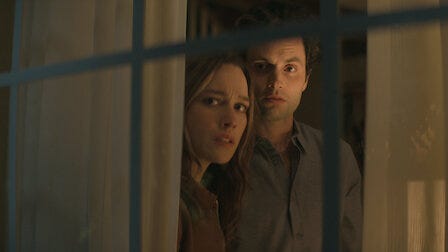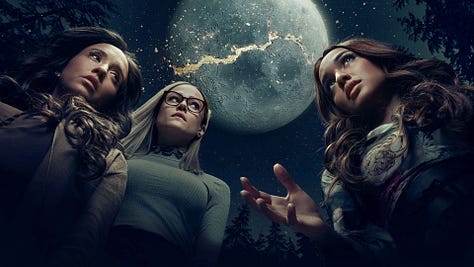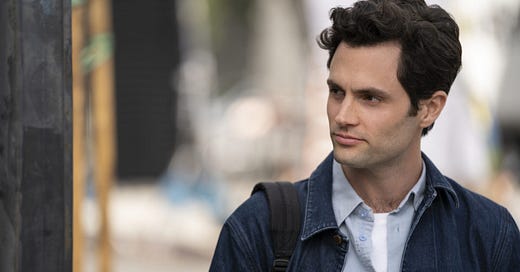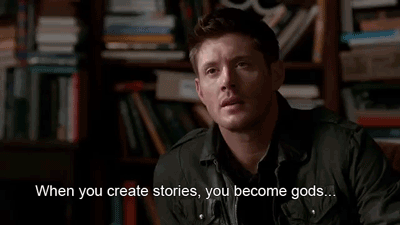


I first met Sera Gamble when she hired Acker and me to join the seventh season of Supernatural. She’d been there since season 1 and, as she later told me, “just set up camp and wouldn't leave.” She was made showrunner in season six when the show’s creator Eric Kripke left.
Supernatural was, from my perspective, a tough show. There was no room and the culture established in the first five seasons tended to silo writers and have them work on their own. When Sera and I spoke on The Writers Panel in 2017, she talked about how she’s done things differently on the shows that she created, The Magicians and You, the fourth season of which just premiered on Netflix:
Some ownership of each episode is helpful for writers. Everyone coming together and being a team, figuring out what the show is and what the season looks like, is important to me… feeling like there is group investment, like we're all in it together.
And then also, at a certain point, when we know what the episode is, I really want one writer to know, “okay, this is your baby. This is the one you get to lose a little bit of sleep.”
In that same conversation, Sera also talks about writing both The Magicians and You on spec before pitching them. This wasn’t really a common practice in 2017, especially for someone coming off of showrunning a successful show. But it’s unsurprising. Sera is a truly brilliant writer and it’s not surprising to read that she’s also a poet. Her scripts are a pleasure to read. Seriously, note some of the turns of phrase in Sera’s 6 Questions answers below. Surprising, engaging, precise.
I love what Sera has to say about discovering the kind of writer you are, the more you practice your craft. It’s clearly something she’s thought about a lot. In our 2017 conversation, she said, “I think about that 10,000 hour thing and I'm sort of like, okay, if you're young and you're starting out, you're like, What do I write?”
Her advice? “Don't overthink what you're writing your pilot about. Just start to write it, because you have to write a bunch of pilots to get really good at writing pilots. So practice writing a pilot, practice finishing a pilot, practice on a pilot you discover you hate and you never want to fucking write that again.”
6 Questions with Sera Gamble
1. What you working on right now?
Aside from launching season 4 of YOU, I'm writing a pilot for Peacock and in development on a few things as a producer.
I'm a poet at night and on weekends. Lately I’ve been publishing new poems and doing a few readings. It's a type of writing that's largely resistant to monetization. As someone who started writing because I wanted to, and then started writing for money because I needed money, it's nice to retain a corner of my writing life that really doesn't give a fuck either way about capitalism stuff.
2. What challenges are you facing specific to your current writing project?
Any time I adapt from source material, I'm trying to do right by it. That sentence didn't really capture the level of soul-deep angst I feel about not fucking it up, actually. At the same time, I'm trying to keep a sliver of ice in my heart, because my job is to make a TV show. If simply transcribing a book into script form actually worked, God knows no one would be hiring screenwriters and cutting them all those checks.
This pilot has fantasy elements, so figuring out what it looks and feels like and what the rules are is taking a lot of drafts. And because I've written fantasy before and I'm averse to repeating myself, I'm pathologically hard on the "why" of everything. One day I’ll write a pilot without writing and scrapping 500 additional pages, but not today.
3. What advice about the business of TV/film writing can you give to someone starting out now?
You may think you know what kind of writer you are but you don’t, yet. You have to write more to know. Try all the genres and all the formats. Write samples of every kind.
People talk about “specializing” — I don’t think that’s about drama vs comedy so much as about your abilities as a writer that will be in any kind of script you write. When a showrunner calls for a recommendation, I don't waste their time saying "she's a superhero expert" or anything else IMDB could tell you. But it's helpful to know who has a knack for grounding crazy ideas, who finds the gallows humor, who always brings in social insights, who makes the argument scenes feel more dangerous, who can get tender without sliding into cheese.
As you become more seasoned and your talents emerge — don't worry, there will be several — they make you an attractive choice for all kinds of projects and also help prevent you from getting pigeonholed.
4. What advice about the craft of writing can you give to someone starting out?
A surprising amount of what you have to do in almost any rewriting situation is to make what you have simpler. A surprising amount of things can be made simpler if you raise the stakes.
5. What do you respond to most in a piece of writing?
I'll answer this pretending you asked me about it specifically in a staffing situation. So, let's assume the script is at a professional level in all basic respects.
I respond to that moment where I say out loud, "Oh SHIT. They just did that." I like boldness.
6. What are you watching/reading/listening to lately that’s getting you excited or inspired?
I like watching things that scare me, so lately I've been going on youtube and watching stormchaser videos of tornadoes.
Below is the Zoom info for Saturday’s Q&A with Sera Gamble for all of you lovely paid subscribers. I love the questions you’ve been bringing to these meet-ups, and I’m excited to hear the great advice Sera will have to offer. If you’re not a paid subscriber and want to join the Q&A, or listen to the recording later, do what the button says:
Keep reading with a 7-day free trial
Subscribe to Re:Writing to keep reading this post and get 7 days of free access to the full post archives.




